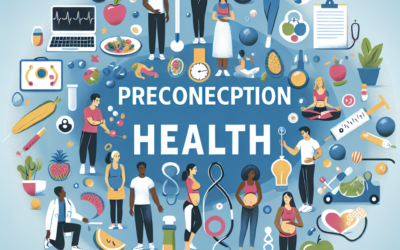Introduction
Sleep is essential for everyone, but it is especially vital for babies and pregnant individuals. For new parents, understanding and nurturing sleep habits in babies can lead to healthier development and more restful nights for the entire family. This article explores the sleep patterns of babies and provides insights for expectant parents on how to prepare for the sleepless nights ahead.
Baby Sleep Patterns
Babies have unique sleep patterns that differ significantly from adults. Newborns typically sleep between 14 to 17 hours a day, though their sleep is fragmented into shorter cycles. Understanding these patterns can help parents navigate their child’s sleep schedule.
The Sleep Cycle of Infants
Infants spend more time in Rapid Eye Movement (REM) sleep, which is crucial for brain development. As they grow, their sleep cycles will gradually lengthen, transitioning to longer periods of deep sleep. Parents should be aware that:
- Newborns may sleep 2-4 hours at a time.
- By 4-6 months, babies can sleep for longer stretches, potentially 6-8 hours at night.
- Sleep routines become more stable as babies approach their first year.
Creating a Sleep-Conducive Environment
A relaxing sleep environment is essential for promoting better sleep in babies. Here are some tips:
- Maintain a Consistent Sleep Routine: Establishing a calming bedtime routine helps signal to your baby that it’s time to sleep.
- Optimal Sleep Space: Ensure the crib is comfortable, safe, and free of distractions. Use soft, dim lighting and maintain a quiet atmosphere.
- Appropriate Sleepwear: Dress your baby in breathable fabrics that keep them cozy but not too hot.
Common Sleep Challenges for Babies
Many parents encounter sleep challenges with their babies. Some may struggle with night waking, while others experience difficulty falling asleep. Common issues include:
- Teething Discomfort: Teething can be painful and disrupt an infant’s sleep cycle.
- Separation Anxiety: As babies grow, they may develop anxiety when separated from caregivers, affecting their sleep.
- Sleep Associations: Reliance on feeding, rocking, or other methods to fall asleep can create sleep associations that make it challenging for babies to self-soothe.
Pregnancy and Sleep
As a pregnant individual, the journey to parenthood involves significant physical and emotional changes, all of which can impact sleep quality. Hormonal fluctuations, physical discomfort, and anxiety about impending parenthood can disrupt sleep patterns.
Sleep Challenges During Pregnancy
Here are some common sleep issues faced during pregnancy:
- Physical Discomfort: As pregnancy progresses, physical changes such as weight gain, back pain, and the growing belly can disrupt comfortable sleep positions.
- Frequent Urination: Increased fluid intake and pressure on the bladder often lead to multiple nighttime trips to the bathroom.
- Restless Legs Syndrome: Some pregnant individuals may experience an uncontrollable urge to move their legs, particularly during the evening.
Tips for Better Sleep During Pregnancy
To combat sleep disturbances during pregnancy, consider the following strategies:
- Find Comfortable Positions: Sleep on your side with a pregnancy pillow to support your body and alleviate pressure points.
- Establish a Bedtime Routine: Similar to babies, creating a calming pre-sleep routine can signal to your body that it’s time to unwind.
- Practice Relaxation Techniques: Gentle yoga, deep breathing exercises, or guided meditation can help reduce anxiety and prepare your mind for sleep.
Conclusion
Understanding and addressing the sleep needs of babies and pregnant individuals is crucial for overall well-being. While challenges may arise, establishing healthy sleep habits and creating supportive environments can pave the way for restful nights. Remember, every family’s journey is unique, so be patient and adapt these tips to fit your specific needs. Happy sleeping!














